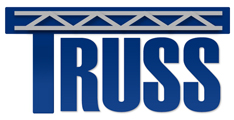![]()
14 PhD studentships available in TRUSS (Training in Reducing Uncertainty in Structural Safety)
 The growth of cities, impacts of climate change and the massive cost of providing new infrastructure provide the impetus for TRUSS (2015-2018, http://trussITN.eu) which aims to maximize the potential of infrastructure that already exists. If flaws in a structure can be identified early, the cost of repair will be vastly reduced, and here an effective monitoring system would allow identifying the optimum time to repair as well as improving structural safety. But safety is difficult to quantify and requires a deep understanding of the uncertainty associated to measurements and models for the structure and loads. For that purpose, TRUSS brings together an intersectoral and multidisciplinary collaboration between 4 Universities, 11 Industry participants and 1 research institute from 5 European countries. The consortium shares expertise and offers training at an advanced level to qualify graduates for dealing with the challenges of an aging infrastructure stock.
The growth of cities, impacts of climate change and the massive cost of providing new infrastructure provide the impetus for TRUSS (2015-2018, http://trussITN.eu) which aims to maximize the potential of infrastructure that already exists. If flaws in a structure can be identified early, the cost of repair will be vastly reduced, and here an effective monitoring system would allow identifying the optimum time to repair as well as improving structural safety. But safety is difficult to quantify and requires a deep understanding of the uncertainty associated to measurements and models for the structure and loads. For that purpose, TRUSS brings together an intersectoral and multidisciplinary collaboration between 4 Universities, 11 Industry participants and 1 research institute from 5 European countries. The consortium shares expertise and offers training at an advanced level to qualify graduates for dealing with the challenges of an aging infrastructure stock.
TRUSS offers highly competitive and attractive salary and working conditions. There are 14 Early Stage Researchers (PhD students) positions starting in August or September 2015. Each position is for a period of 36 months. The recruitment is done on a competitive basis across all applicants for the projects (note host country for eligibility purposes):
- Reliability of concrete structures reinforced with braided FRP (Host: UCD, Ireland);
- Reduction of uncertainty in assessing concrete strength of existing structures (Host: Ove Arup, Ireland);
- Reduction of uncertainty in design of free standing nuclear spent fuel rack (Host: ENSA, Spain);
- Optimization of the design of offshore wind turbine towers (Host TCD, Ireland);
- Integrity management of ship structures (Host: Lloyd’s Register, United Kingdom);
- Residual life assessment and management of ship unloaders (Host: Lloyd’s Register, United Kingdom);
- Railway Weigh-In-Motion for bridge safety (Host: FSDL, United Kingdom);
- Probabilistic modelling of bridge damage based on damage indicators (Host: Phimeca, France);
- Railway bridge condition monitoring and fault diagnostics (Host: UNOTT, United Kingdom);
- Assessment of bridge condition and safety based on measured vibration level (Host: UPC, Spain);
- Development of optical fibre distributed sensing for SHM of bridges and large scale structures (Host: UPC, Spain);
- Bridge damage detection using an instrumented vehicle (Host: UCD, Ireland);
- Using truck sensors for road pavement performance investigation (Host: UNOTT, United Kingdom);
- Reduction of uncertainty through regularized, automated road inspection (Host: UCD, Ireland).
More information about the application procedure here
ITN website: http://trussitn.eu/
